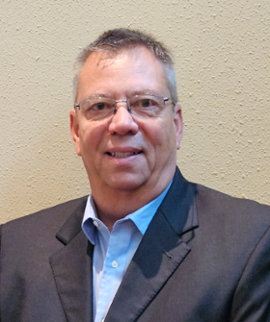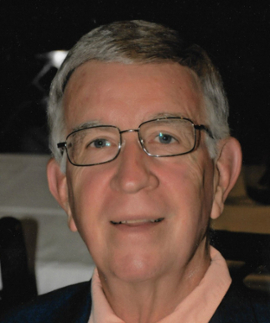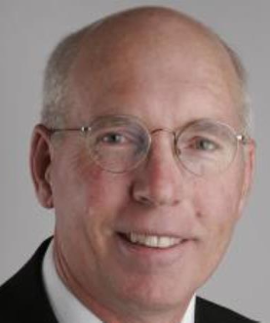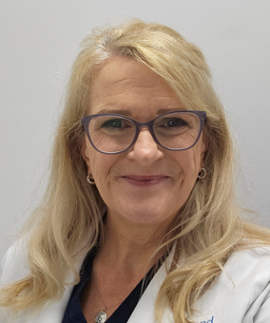
Forensic dentistry is a fundamental discipline within the forensic sciences answering all medico-legal questions involving dentition and maxillofacial structures. The two-year master’s program curriculum is designed to provide dentists interested in forensics with the education, training and experience required to clinically perform and produce expert opinions in cases involving single, multiple and mass disaster dental identification in the medical examiner's office; assess dental age; recognize human abuse and patterned injury in accordance with the Standards and Guidelines of the American Board of Forensic Odontology. Graduates will be prepared to pursue national and international forensics careers. Tuition is $12,600 per semester. The program matriculates in August of each year.
Lincoln Memorial University is partnering with the Knox County Regional Forensic Center (RFC) as a part of the educational experience and training. Students will learn how anthropologist recovers and analyzes decomposed and skeletal remains in clandestine and crime scene situations. Special training includes the discovery and archaeological excavation of skeletal and dental remains followed by laboratory interpretation of perimortem ballistic, blunt and sharp-force injury. As part of the program, students, under the guidance of the Division of Forensic Dentistry faculty and staff, will provide comprehensive dental and anthropological services to the Knox County Medical Examiner’s Office as well as to outside individuals, organizations, and agencies.
The master’s degree in Forensic Dentistry is research focused, educating the forensic dentist in qualitative and quantitative research protocols and design methodology. The goal of the program is to produce valuable forensic research both independently and in collaboration with other educational and research institutions.
The degree is awarded by Lincoln Memorial University upon fulfilling the program requirements, completion of research, production and acceptance of a thesis, and successful defense of the independent research effort.
To provide the forensic dentist with the knowledge and clinical skills required to critically evaluate and perform single, multiple and mass disaster dental identifications; estimate human dental age; recognize human abuse and patterned injuries in accordance with the American Board of Forensic Odontology’s Standards and Guidelines.
To provide comprehensive dental, anthropological, and DNA services to the Knox County (Tennessee) Regional Forensic Center (Knoxville) and outside individuals, organizations and agencies upon request.
To develop forensic report writing styles for legal medicine submission to medical examiners and other medico-legal agencies and authorities; and, to educate the forensic dentist in court room dynamics and develop their skills as an expert witness.
Develop objective evaluation skills, consideration and analysis of an issue in order to form an unbiased judgement or opinion based upon intellectual reasoning and truth. This program will promote and develop a critical approach to collection, analysis and interpretation of forensic dental evidence. Additionally, to critically evaluate and understand published articles and conduct research appropriately.
To educate the forensic dentist in qualitative and quantitative research protocols and design methodology. It is the goal of the program to produce valuable forensic research both independently and in collaboration with other educational and research institutions.
To expose and educate the forensic dentist to how the anthropologist analyzes decomposed and skeletal and dental remains in clandestine and crime scene situations. Special training involves discovery and archaeological excavation of skeletal and dental remains followed by laboratory interpretation of perimortem ballistic, blunt and sharp-force injury.
(F DENT 801) Introduction to Forensic Science* (2) A survey of the American Academy of Forensic Science forensic specialties and provides basic information on morgue protocols. This course provides the basic medico-legal knowledge and understanding of morgue protocols necessary to perform duties in a medical examiner’s office.
(F DENT 802) Clinical Head & Neck Anatomy* (3) This course presents a detailed study of the anatomic structures fundamental to dental specialty training. Detailed gross dissection of the human head and neck with emphasis placed on traditional musculo-skeletal and neuro-vascular architectural relationships as they relate to growth and development. This pedagogy allows immediate recognition of odonto-skeletal structures relevant to positive identification, and the pathology of forensic perimortem trauma. Participants review standard texts of head and neck anatomy and radiology, and other professional literature to support specialty-specific questions/topics
(F DENT 803) Radiology* (2) This course offers the fundamentals of theory and practice that constitute a working knowledge of the radiologic sciences as they apply to general and forensic dentistry. Laboratory exercises will be utilized to develop practical skills in the area of dental radiographic procedures which serve as the foundation for intraoral radiographic image acquisition and interpretation. The course will cover basic principles and anatomy revealed by intraoral and panoramic imaging as well as cone beam computed tomography (CBCT).
(F DENT 807) (LSCI 604) Graduate Life Science Research Design & Analysis* (3) This course covers the principles and applications of discovery research design in the life sciences. This includes framing and articulating a research question, designing an experimental approach, proposing methods to collect valid data, planning approaches to data analyses, and planning presentation of results. Examples from the primary literature will be discussed and evaluated as they relate to these principles and applications.
(F DENT 804) Forensics Research Methods* (2) This course is a comprehensive examination of the scientific research process including research ethics, literature search and research design. This course requires the student to complete a research proposal which includes comprehensive literature review and research design to be used for the student’s thesis project.
(F DENT 805) Forensic Science Journal Club* (1) An evaluation and discussion of relevant historical and current methodology and trends in forensic dentistry and forensic science (focus choice of faculty).
(F DENT 806) Forensic Odontology I* (3) This course is a historical and practical demonstration of the theory and practice in human forensic identification procedures and age assessment methodology. Its aim is to prepare the student to perform human identifications and age assessments in a medical examiner office setting as well as in mass disaster situations. It provides the basic medico-legal knowledge necessary to perform these duties in its application to law and the U.S. legal system
(F DENT 808) Dental Ethics* (1) Seventeen (17) online modules available through the American College of Dentists identified as particularly relevant to postgraduate dental education and the specialty practice of dentistry will constitute this course. Following completion of online activities, students review modules with individual Postgraduate Program Directors to explore and reinforce ties between ethics concepts learned and specific applications in dental specialty practice.
(F DENT 809) Dental Specialties Review* (2) This course is a review of the current dental school level standards and trends in the areas of biomaterials, endodontics, pedodontics, periodontics, prosthodontics, orthodontics, oral/maxillofacial surgery, and oral medicine. It provides basic knowledge in recognition of dental materials, restorations, prostheses, and oral pathology in order to assist the forensic dentist perform duties in application to the law and medico-legal system.
(F DENT 810) Research and Manuscript (1) This course provides postgraduate students with the experience of engaging in dental and related sciences, and to pursue a Masters of Dental Science (MDS) degree. In this course, students will work on individual research projects under the supervision of an individual advisor experienced in research methodologies and scientific writing. Students will work on the inception, implementation, and submission for publication of a research project with an individual advisor. Student activities include library research, writing a literature review, developing a research protocol, hands-on research, gathering and analyzing data, interpreting experimental results, developing conclusions, and publishing outcomes. Submission for publication of the original research is required.
(F DENT 804) Forensics Research Methods* (2) This course is a comprehensive examination of the scientific research process including research ethics, literature search and research design. This course requires the student to complete a research proposal which includes comprehensive literature review and research design to be used for the student’s thesis project.
(F DENT 805) Forensic Science Journal Club* (1) An evaluation and discussion of relevant historical and current methodology and trends in forensic dentistry and forensic science (focus choice of faculty).
(F DENT 806) Forensic Odontology I* (3) This course is a historical and practical demonstration of the theory and practice in human forensic identification procedures and age assessment methodology. Its aim is to prepare the student to perform human identifications and age assessments in a medical examiner office setting as well as in mass disaster situations. It provides the basic medico-legal knowledge necessary to perform these duties in its application to law and the U.S. legal system
(F DENT 808) Dental Ethics* (1) Seventeen (17) online modules available through the American College of Dentists identified as particularly relevant to postgraduate dental education and the specialty practice of dentistry will constitute this course. Following completion of online activities, students review modules with individual Postgraduate Program Directors to explore and reinforce ties between ethics concepts learned and specific applications in dental specialty practice.
(F DENT 809) Dental Specialties Review* (2) This course is a review of the current dental school level standards and trends in the areas of biomaterials, endodontics, pedodontics, periodontics, prosthodontics, orthodontics, oral/maxillofacial surgery, and oral medicine. It provides basic knowledge in recognition of dental materials, restorations, prostheses, and oral pathology in order to assist the forensic dentist perform duties in application to the law and medico-legal system.
(F DENT 810) Research and Manuscript (1) This course provides postgraduate students with the experience of engaging in dental and related sciences, and to pursue a Masters of Dental Science (MDS) degree. In this course, students will work on individual research projects under the supervision of an individual advisor experienced in research methodologies and scientific writing. Students will work on the inception, implementation, and submission for publication of a research project with an individual advisor. Student activities include library research, writing a literature review, developing a research protocol, hands-on research, gathering and analyzing data, interpreting experimental results, developing conclusions, and publishing outcomes. Submission for publication of the original research is required.
(F DENT 815) Research and Manuscript (6) This course provides postgraduate students with the experience of engaging in dental and related sciences, and to pursue a Masters of Dental Science (MDS) degree. In this course, students will work on individual research projects under the supervision of an individual advisor experienced in research methodologies and scientific writing. Students will work on the inception, implementation, and submission for publication of a research project with an individual advisor. Student activities include library research, writing a literature review, developing a research protocol, hands-on research, gathering and analyzing data, interpreting experimental results, developing conclusions, and publishing outcomes. Submission for publication of the original research is required.
“Project Option” Thesis (6) and above courses to total 36 hours
(Project Option is defined as research performed under the direction of a faculty advisor which will culminate in an oral defense and article submission for publication in a peer reviewed journal.)
The Forensic Dentistry Faculty recognizes that completion of the Project Option Thesis is ambitious in the proposed two (2) year Program. Masters students may elect to extend the Program to five (5) terms with three (3) hours of Project Option Thesis taken in Year 2 Term 2 and in Year 3 Term 1.

James M. Lewis DMD D-ABFO
Director of Forensic Odontology & Associate Professor of Dental Medicine
Dr. Lewis is a native of north Alabama and earned his dental degree from the University of Alabama Birmingham School of Dentistry in 1985. He maintained a general dentistry practice in Madison, Alabama from 1986 – 2017; completed the Fellowship in Forensic Odontology from the Center for Education and Research in Forensics, University of Texas Health Science Center at San Antonio in 2001; and, currently is a forensic dental educator and consultant. In 2017, he became a dental consultant to the Knox County Regional Forensic Center in Tennessee and the Director of Forensic Dentistry in the Division of Forensics at the University of Tennessee Graduate School of Medicine, Knoxville where he administrated a Fellowship and Master of Science programs in Forensic Dentistry. Dr. Lewis joined the Lincoln Memorial University, College of Dental Medicine as an associate professor of dental medicine and Director of Forensic Dentistry in 2022. As the College of Dental Medicine’s Director of Forensic Dentistry, Dr. Lewis is the program administrator for the Master of Science in Forensic Dentistry and Fellowship in Forensic Dentistry programs; and, oversees forensic dental research.

Thomas J. David DMD D-ABFO
Part-Time Assistant Professor of Dental Medicine
Thomas J. David obtained his Doctor of Dental Surgery (DDS) from Emory University in 1977. He received post-graduate training in Orofacial Pain & Temporomandibular Disorders (TMD) at the University of Florida 1996. His clinical practice involves the treatment of TMD as well as Oral Medicine. He has been an Assistant Professor at LMU College of Dental Medicine since 2022. His teaching includes Forensic Dentistry in the Fellowship & the Master’s Programs. He also teaches Oral Diagnosis, Dental Risk Management, Standards of Care in Dentistry, and Ethics and Professional Responsibility. He hopes to teach Orofacial Pain & Oral Medicine to 3rd & 4th year students at the College of Dental Medicine.

Peter W. Loomis DDS D-ABFO
Part-Time Dental Faculty & Assistant Professor
Peter received his undergraduate education at the University of New Mexico and completed his dental education at the University of Missouri at Kansas City School of Dentistry in 1972. He completed a general practice residency at the Indian Health Service Alaska Native Medical Center. He received his training in Forensic Odontology at the Armed Forces Institute of Pathology and the University of New Mexico. He maintained a general dental practice in Albuquerque for 28 years and has been a forensic odontology consultant with the New Mexico Office of the Medical Investigator since 1976. Dr. Loomis is certified by the American Board of Odontology. Dr. Loomis is a past President of the American Board of Forensic Odontology, a Fellow of the American Academy of Forensic Sciences, and a member of the American Society of Forensic Odontology. He is the founder and director of the New Mexico MFI Dental Identification Team and serves as a forensic odontologist for DMORT Region 6, the Child Abuse Response Team (CART) at the University of New Mexico School of Medicine, the FBI/CJIS Dental Image Repository Panel and is past chairman of the Dental Identification Task Group of the Odontology Subcommittee of the Medicine Committee (SAC) within the NIST Organization of Scientific Area Committees (OSAC). Dr. Loomis has been a clinical assistant professor at the University of New Mexico School of Medicine Department of Pathology since 2012 and at the Lincoln Memorial College of Dental Medicine Forensic Odontology Program since 2022.

Holland Maness, DMD D-ABFO
Part-Time Associate Professor of Dental Medicine
Holland Maness, DMD, D-ABFO received her dental and orthodontic training at the Medical College of Georgia. She completed a fellowship in Forensic Dentistry at the University of Texas Health Science Center San Antonio. She is dual board-certified in both Orthodontics and Forensic Odontology. Dr. Maness is one of our inaugural faculty members at LMU College of Dental Medicine serving as a part-time instructor in our LMU Forensic Fellowship program. She also practices orthodontics in a private setting in Augusta, Georgia.